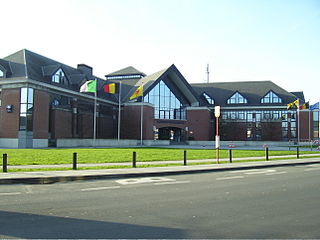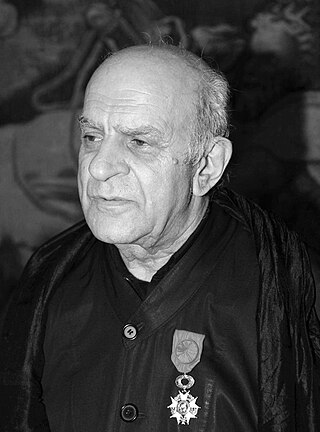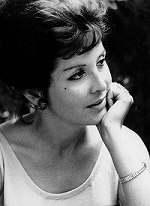Related Research Articles

Waterloo is a municipality in Wallonia, located in the province of Walloon Brabant, Belgium, which in 2011 had a population of 29,706 and an area of 21.03 km2 (8.12 sq mi). Waterloo lies a short distance south of Brussels, and immediately north-east of the larger town of Braine-l'Alleud. It is the site of the Battle of Waterloo, where the resurgent Napoleon was defeated for the final time in 1815. Waterloo lies immediately south of the official language border between Flanders and Wallonia.

Jan Yoors was a Belgian-American artist, photographer, painter, sculptor, writer, filmmaker, and tapestry creator. Growing up in Antwerp to liberal, pacifist parents, his father Eugeen Yoors, a famed stained-glass artist, Yoors studied painting before deciding to live with a Rom kumpania he encountered on the outskirts of Antwerp at the age of twelve, and about which he would later write two memoirs, The Gypsies (1967) and Crossing: A Journal of Survival and Resistance in World War II (1971), the latter about living with the Rom during World War II. Yoors fled to London after the war where he lived with his wife Annebert and her best friend Marianne. It is at this point that Yoors began to design tapestries and set up a tapestry studio with his wife Annebert and Marianne. In 1950 he moved to New York, traveling there under the guise of a journalist. The following year, Annebert and Marianne joined and the three set up the Jan Yoors Studio. In New York, Yoors befriended numerous figures in the art and design worlds. He received commissions from corporations such as Bank of America, and J.P. Morgan, and private collectors. His work was seen in numerous exhibitions across the United States and internationally. In New York in the 50s, Yoors also continued his passion for photography, which he began while living with the Rom, documenting the streets of New York. He traveled extensively on a trip to revisit his Rom family in Europe, and, in 1966–67 photographed post-war religious buildings for Edward Sovik as part of the First International Congress on Religion, Architecture, and the Visual Arts in New York. Yoors's oeuvre is currently represented by several galleries in New York, Europe including reGeneration Furniture, Todd Merrill, L Parker Stephenson Photographs, and Fifty One Fine Art Photography, Antwerp, and regularly shown at design and photography fairs.

Kenny Scharf is an American painter known for his participation in New York City's interdisciplinary East Village art scene during the 1980s, alongside Jean-Michel Basquiat and Keith Haring. Scharf's do-it-yourself practice spanned painting, sculpture, fashion, video, performance art, and street art. Growing up in post-World War II Southern California, Scharf was fascinated by television and the futuristic promise of modern design. His works often include pop culture icons, such as the Flintstones and the Jetsons, or caricatures of middle-class Americans in an apocalyptic science fiction setting.
Jan De Cock is a contemporary Belgian visual artist. From the start of his career, his art has revolved around production and the ways in which an artist relates to the broad culturally-injected concept of Modernism. In 2003 Jan De Cock entered the competition Prix de la Jeune Peinture Belge. He is, after Luc Tuymans, only the second Belgian artist to have had a solo exposition at Tate Modern and the first living Belgian artist to have an exhibition at MoMA, which opened on 23 January 2008. Much of his work draws on visual and formal comparisons between early-20th century abstract art movements and contemporary design and mass production. During the first decade of his career the artist worked on the intersection of sculpture and architecture and he succeeded in extending the underlying functionalist consequences of the Russian Modernist artist El Lissitzky‘s Proun Room, thus completing a missing link within the modernist program yet to be completed in late twentieth century modernist art.

The Centre for Fine Arts is a multi-purpose cultural venue in the Royal Quarter of Brussels, Belgium. It is often referred to as BOZAR in French or by its initials PSK in Dutch. This multidisciplinary space was designed to bring together a wide range of artistic events, whether music, visual arts, theatre, dance, literature, cinema or architecture.

Jacques Calonne was a Belgian artist, composer, singer, actor, logogramist, and writer.

Alekos Fassianos was a renowned Greek painter. He gained recognition for his distinctive style, which was characterized by immediacy and a deliberate departure from standardized painting techniques.
Peter Ford Young is an American painter. He is primarily known for his abstract paintings that have been widely exhibited in the United States and in Europe since the 1960s. His work is associated with Minimal Art, Post-minimalism, and Lyrical Abstraction. Young has participated in more than a hundred group exhibitions and he has had more than forty solo exhibitions in important contemporary art galleries throughout his career. He currently lives in Bisbee, Arizona.

Hanneke Beaumont is a Dutch sculptor known for her large scale figurative works in terracotta, bronze and cast iron.
Cauvin is a surname. Notable people with the surname include:

Oda Jaune is a Bulgarian painter.
Janise Yntema is an American painter working in the ancient wax encaustic technique. Yntema was born in New Jersey and attended Parsons School of Design and the Art Students League of New York. She has had solo exhibitions in New York and throughout the United States as well as London, Amsterdam and Brussels. Her works are in the collections of several museums in Europe and the United States, including the Museum of Modern Art and Metropolitan Museum of Art.

Evelyne Axell was a Belgian Pop painter. She is best known for her psychedelic, erotic paintings of female nudes and self-portraits on plexiglas that blend the hedonistic and Pop impulses of the 1960s. Elements of the 1960s—the Vietnam War, the Black Panthers movement, and the sexual liberation of women affected her work.
Milorad Bata Mihailović was a Serbian painter.
Johan Van Mullem is a Belgian artist living and working near Brussels. He is a painter and sculptor known mainly for his depiction of faces.

Hubert Bonnet is a Switzerland-based Belgian businessman, entrepreneur and art collector.

Roger Van de Wouwer was a Belgian surrealist painter and illustrator.

Ray Richardson is a British painter. He lives and works in London.
Márta Kucsora is a contemporary artist, known primarily for her large-scale abstract paintings. Kucsora had solo shows at Galerie Melbye-Konan, Postmasters Gallery, the Kalman Maklary Fine Arts, the Kunsthalle in Budapest (Hungary) and the Kepes Institute. She was included in museum shows at 21C Museum Bentonville, Hungarian National Gallery and Ernst Museum. In 2006, she co-founded the Budapest Art Factory and runs an International Artist Residency Program there.

Willem Adriaan Paerels was a Dutch-Belgian painter. He painted in the style of impressionism, fauvism and expressionism.
References
- 1 2 "Sophie Cauvin / - peintre belge - belgian painter - belgium painter - belgische schilder". www.lagalerie.be. Retrieved 2021-09-25.
- ↑ "Documentary "On Melting Snow" Screened". Azərbaycan Respublikası Mədəniyyət Nazirliyi. 2024-10-07. Retrieved 2024-11-02.